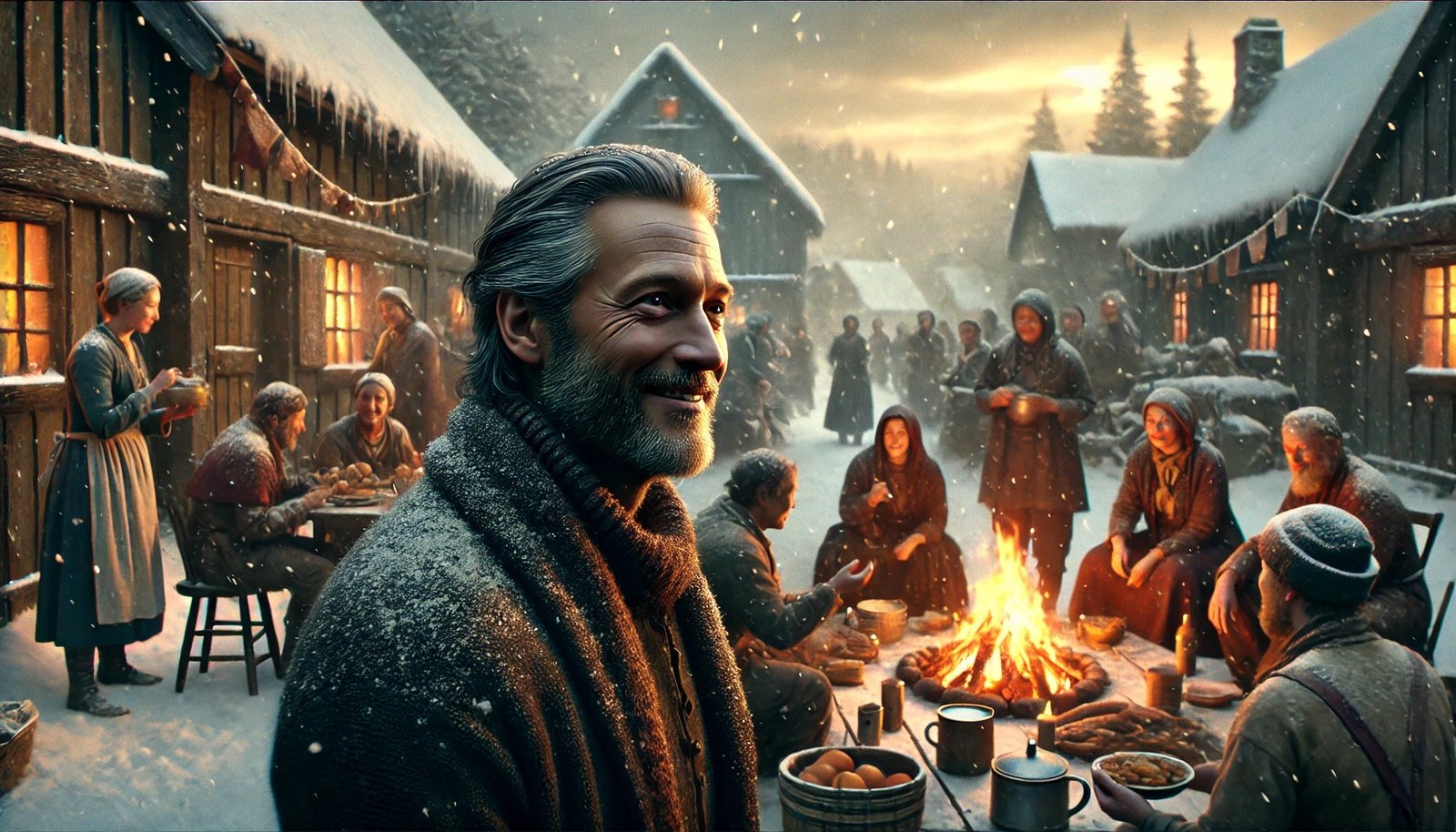The begger and the miser
In a small, quaint village nestled between rolling hills and dense forests, there lived a miserly man named Alaric. Alaric was known throughout the village for his immense wealth, which he guarded jealously. His mansion, a grand structure with towering walls and a tall barn, stood at the edge of the village, adorned with intricate carvings and a large iron padlock on the front gate. Despite his riches, Alaric was a man of few friends, for his heart was as cold as the coins he hoarded.

One crisp autumn morning, as the villagers prepared for the upcoming harvest festival, an old beggar made his way through the cobblestone streets. His name was Tobias, a man weathered by time and misfortune. His clothes were little more than rags, patched together over the years, and he walked with the aid of a wooden staff. Tobias had journeyed from village to village, relying on the kindness of strangers for food and shelter.
As Tobias approached the village, his eyes caught sight of Alaric’s grand mansion. The barn loomed tall beside the house, its doors firmly shut with a heavy lock. Knowing the wealth of the mansion's owner, Tobias decided to try his luck and seek some kindness from within.
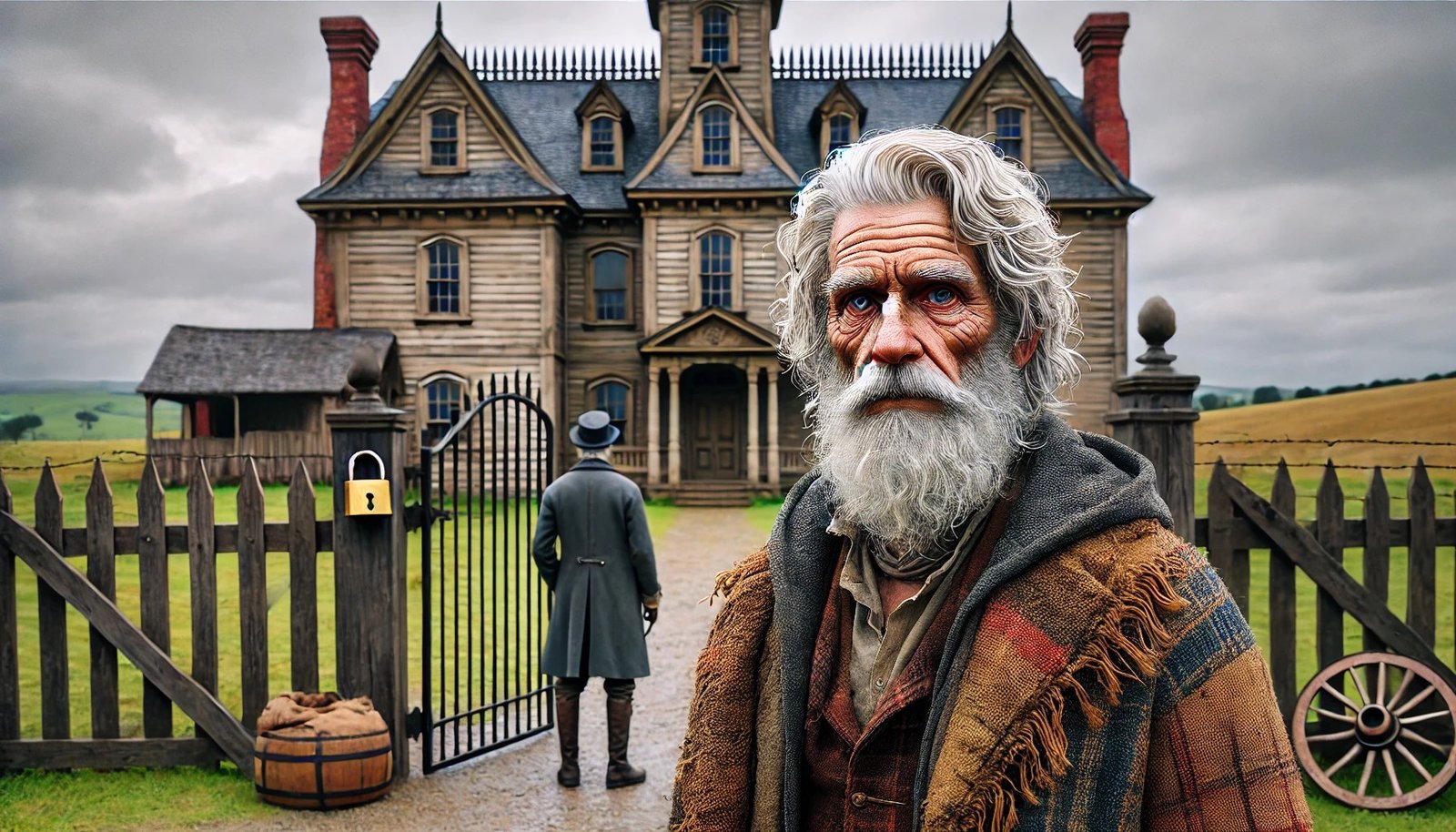
He knocked on the heavy wooden door, and after a few moments, Alaric opened it, his expression a mixture of suspicion and annoyance. "What do you want?" Alaric snapped, his eyes narrowing at the sight of the ragged beggar.
"Good day, sir," Tobias replied, his voice soft yet steady. "I have traveled far and am weary. Could you spare some milk to ease my hunger?"
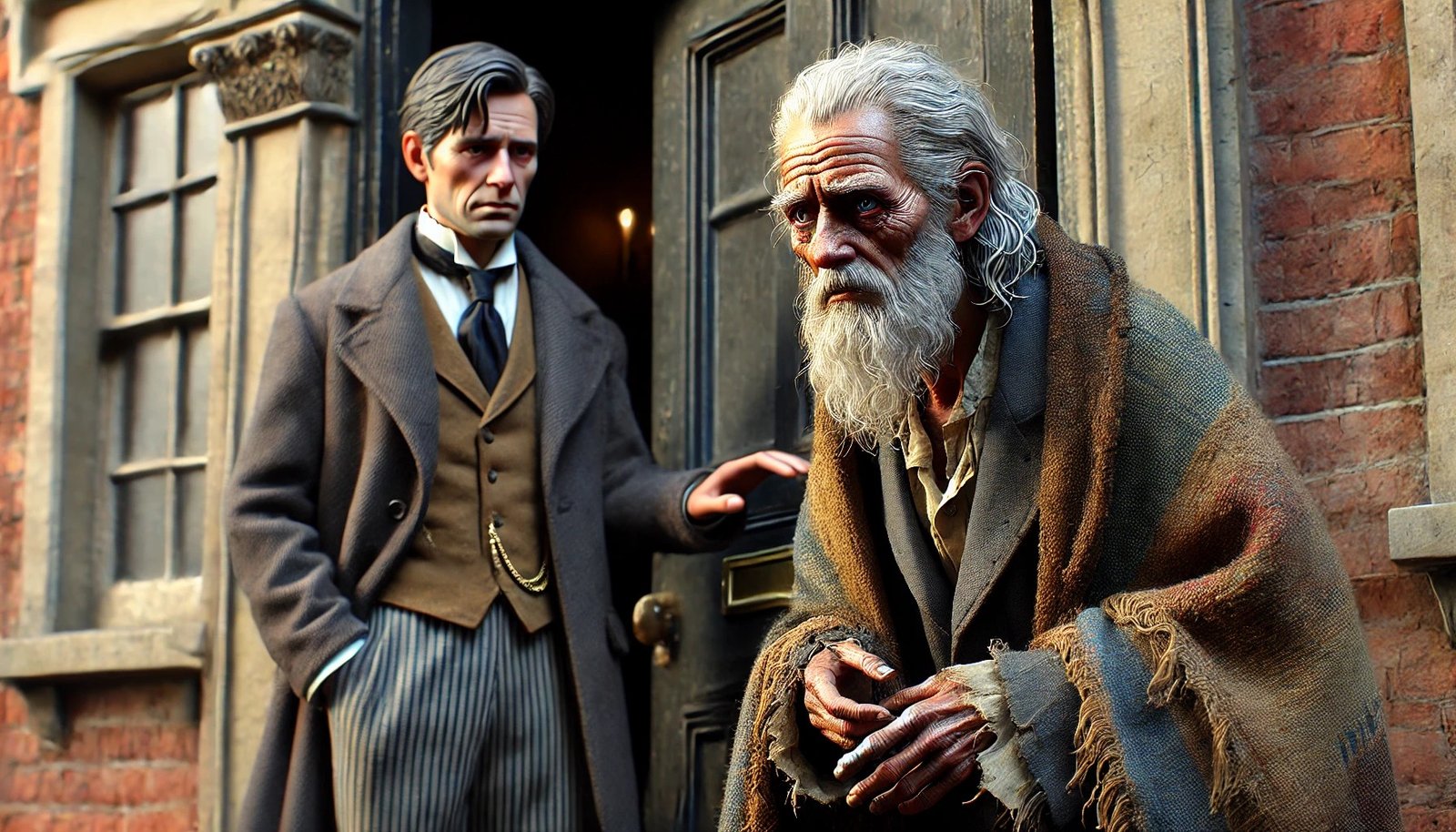
Alaric scoffed, his lips curling into a sneer. "Milk? I have none to spare. Be gone with you!"
Undeterred, Tobias continued, "Perhaps you could offer me some wheat or beans? I am truly hungry."
"I told you, I have nothing to give!" Alaric barked, his voice rising with irritation.
Tobias, feeling the pangs of hunger gnawing at his stomach, tried once more. "A piece of bread, perhaps? Even the smallest crumb would be appreciated."
Alaric’s face reddened with anger. "I have no bread for beggars! Now leave before I call the guards."
Desperation gnawed at Tobias, but he knew he must not lose his temper. "At least a cup of water, then? I am very thirsty from my travels."
Alaric’s patience snapped. "I have no water for the likes of you! Go away and stop wasting my time!"
Tobias looked into Alaric’s eyes, seeing a man trapped by his own greed. With a calm and steady voice, he said, "Oh, my son, why are you sitting here then wasting your time? Stand up and start begging food from the good people. You are even poorer than I am."
Alaric was taken aback by the beggar’s words. He stood frozen in the doorway, watching as Tobias turned and walked away. For the first time, Alaric felt a pang of something he had long forgotten—shame. The beggar’s words echoed in his mind, and as the days passed, they grew louder and louder.
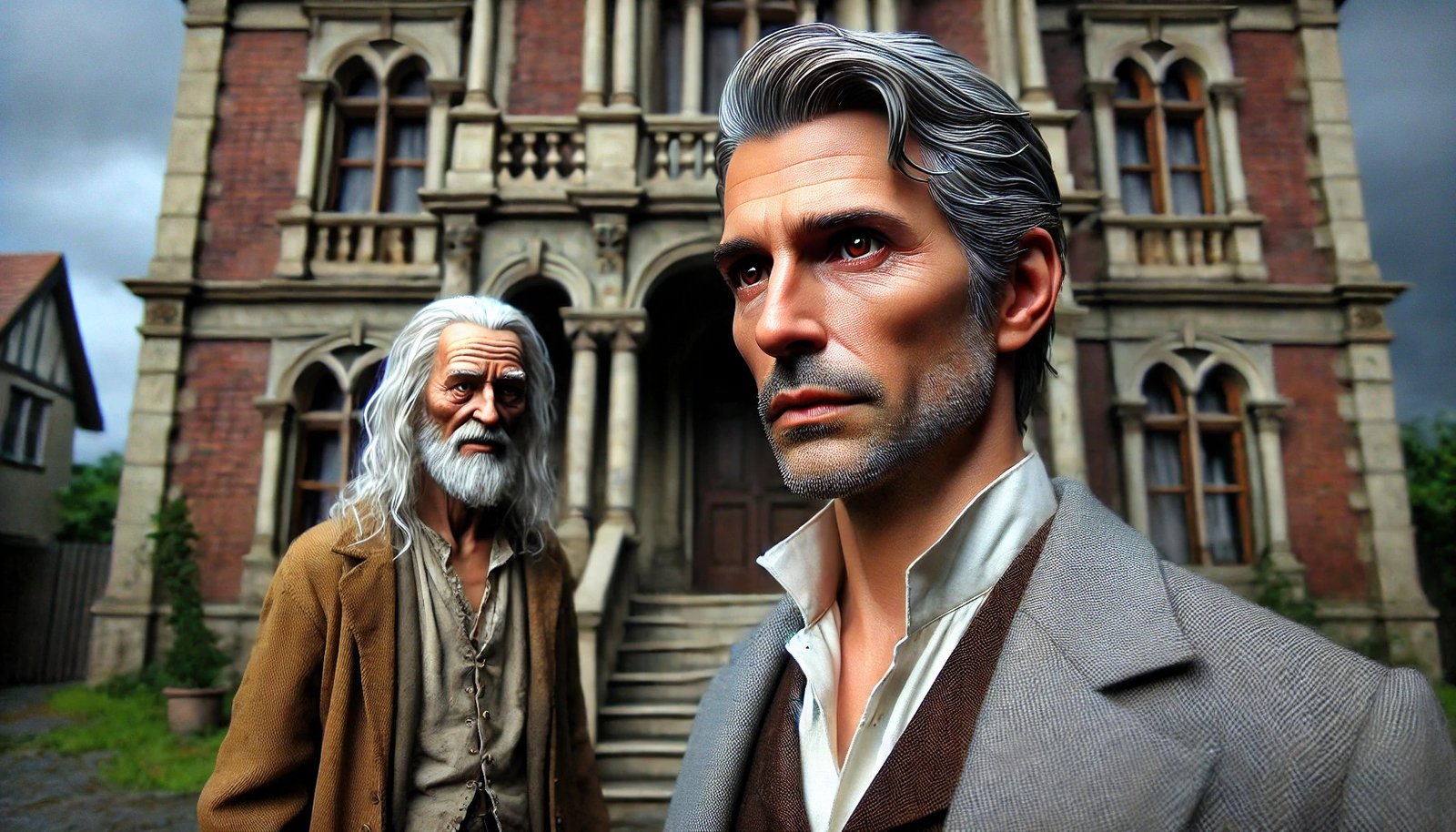
That night, Alaric could not sleep. The darkness of his mansion seemed to close in on him, and the luxurious surroundings that once brought him comfort now felt like a prison. He tossed and turned in his bed, haunted by the beggar’s words. "Poorer than a beggar," he muttered to himself. How could this be true? He was the richest man in the village!

Days turned into weeks, and Alaric found no solace. The villagers noticed a change in him. He no longer strutted through the village with his usual arrogance. Instead, he seemed lost in thought, his mind burdened by something unknown.
One cold winter evening, as snow began to blanket the village, Alaric made a decision. He wrapped himself in a thick cloak and ventured out into the night, heading toward the village square. There, he found a group of villagers gathered around a small fire, sharing what little food they had with one another.
Alaric approached them, his presence causing a stir. The villagers whispered among themselves, wondering why the miserly Alaric was out on such a night. But before they could speak, Alaric pulled out a sack filled with money and handed it to the village elder.
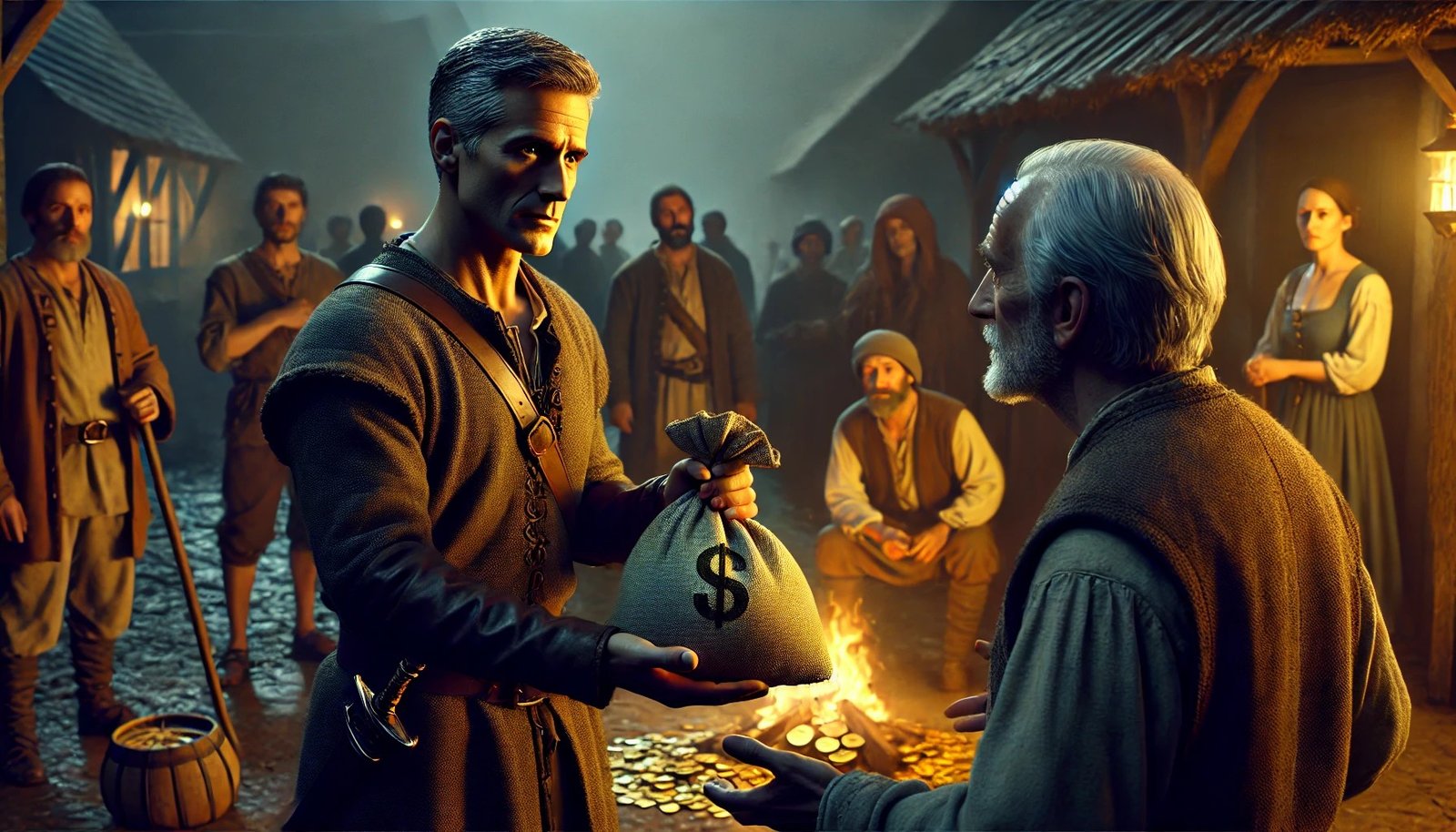
"I have been blind," Alaric said, his voice heavy with emotion. "This wealth has poisoned my soul, and I have hoarded it while others suffer. Please, take this gold and use it to help those in need."
The villagers were stunned. Was this the same Alaric they had known all their lives? The man who never gave a penny to anyone?
As the village elder took the sack, Alaric continued, "There is more in my mansion. Tomorrow, I will open my doors, and you may take what you need. No one in this village shall go hungry or cold again."
The news of Alaric’s change of heart spread quickly, and the next day, the villagers gathered outside his mansion. True to his word, Alaric opened the gates, and the people entered, filling their baskets with food.
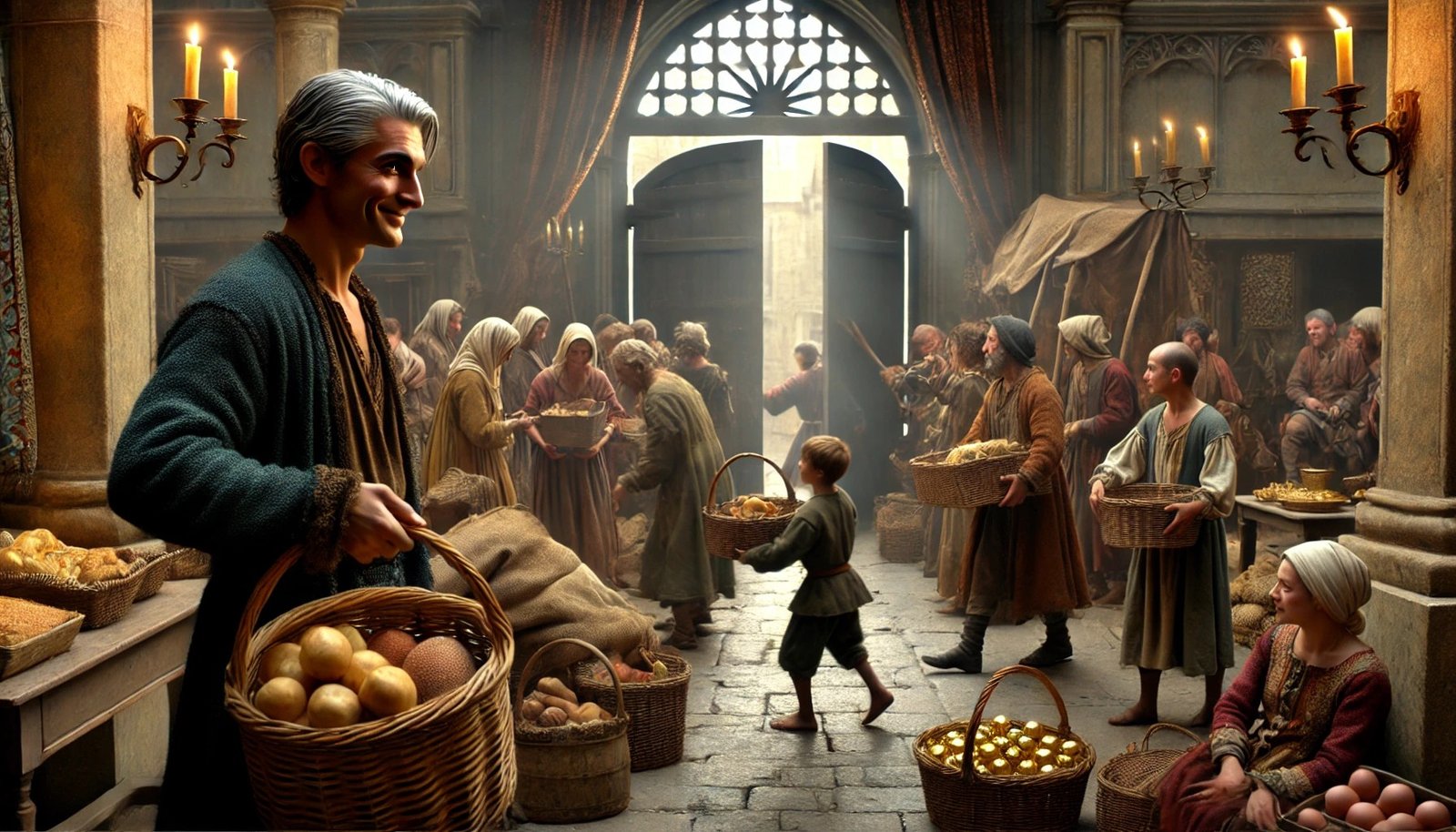
Tobias, who had been resting in a nearby village, heard of the miser’s transformation. He made his way back to the village and watched from a distance as Alaric, now smiling and content, handed out food and supplies to the needy.
As the villagers left with their newfound treasures, Tobias approached Alaric. The two men stood in silence for a moment, before Alaric spoke. "Your words, old man, they pierced my heart. You were right—I was poorer than you, for I had wealth but no compassion. Thank you for opening my eyes."
Tobias smiled, a warmth spreading through him. "It is never too late to change. May you find peace in giving."
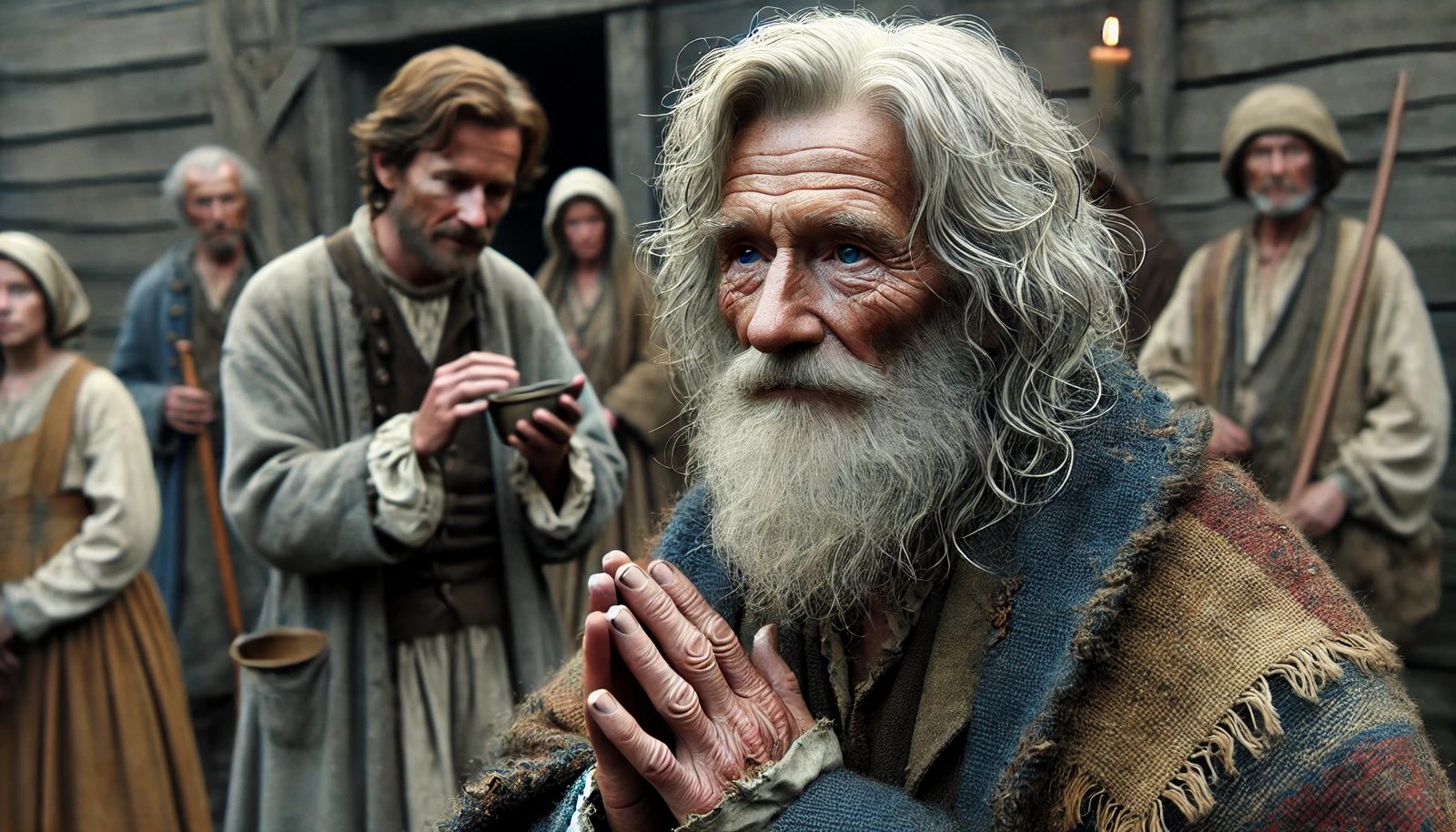
From that day forward, Alaric became known as the village's most generous benefactor. His mansion, once a symbol of greed, became a refuge for the poor and needy. And Tobias, the old beggar, continued his travels, spreading kindness and wisdom wherever he went.
And so, in that small village, the cold winter was warmed not just by fires, but by the newfound generosity of a man who had learned that true wealth is not measured in gold, but in the kindness of the heart.
